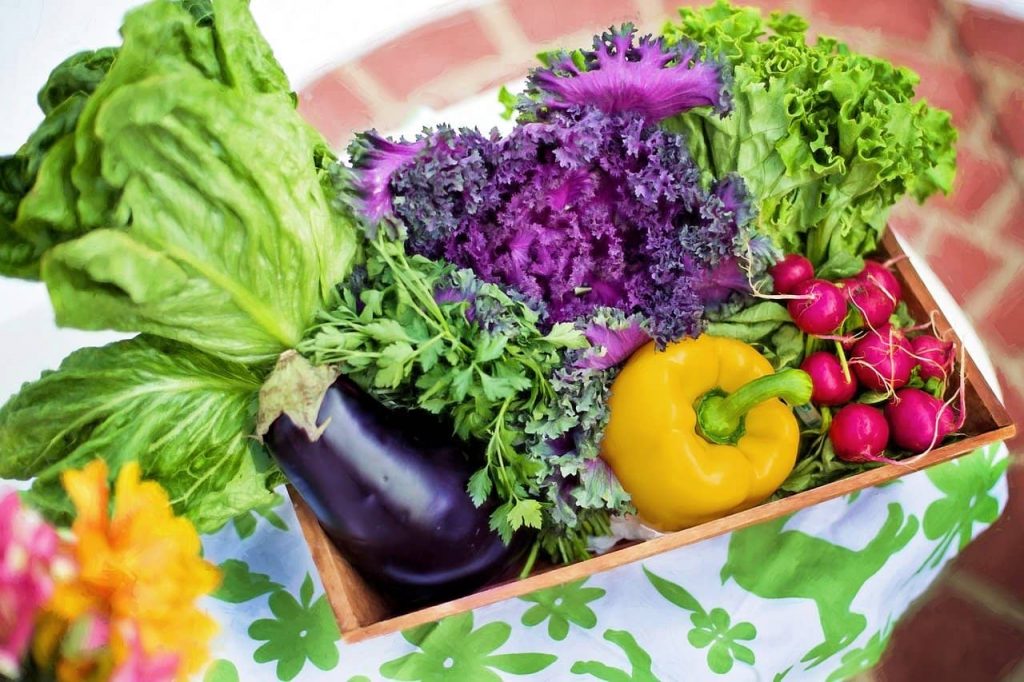Want to save money on food by doing some of the work yourself? Starting a home garden helps you produce cheap organic food for you and your family. With a little bit of elbow grease and the willingness to get a farmer’s tan, you can produce a home garden that can feed your family over multiple years. Try some of these starting guidelines to help set yourself up for success!
Keep Costs Low and Start Small
Your home garden will be an investment. As with all investments, it’s best to keep costs as low as possible while maximizing the potential return. Start small with whatever you have at your disposal. If you are new to gardening, try starting with a simple pot; even a plastic pot will do. Although many will want to jump onto bigger projects starting with a single pot can be a test trial on growing your own food. Even using a plastic shoe rack can be great if you are building a vertical home garden.
However, if you are looking for something a little bit more challenging, try having a small square planting bed that is a foot long and a foot wide. This is one of the best ways to build a sustainable home garden as you can branch out foot by foot. It will give you a nice starting place to build upon and can help you branch out the increased workload. If you want to make the planting bed nice on the eyes try building one yourself.
You will probably make some mistakes. As Heather Levin points out in money crashers “My first year starting seeds I lost my entire crop because I didn’t know what I was doing and overwatered. Last year, I lost half my crop and had to start over. So there will most likely be failures and successes, but that’s part of the fun.” Having a small home garden gives you the option of failing without a hefty financial burden. You can save money in simple ways such as making your own compost. Compost is made by taking organic things such as old plants, fruit trimmings, leaves, and other materials and putting them together in your soil. It will give your small home garden the nutrients it needs to survive that first year. It’s not about having the biggest harvest, but knowing you can succeed at this.
Access to Water and Sunlight
Did you know that not all plants need sunlight all-day? It’s true. Nor should you give your plants too much water. Yet, you will want to think about how much access your plants will have to those natural resources. If you are growing your home garden for the first time, try having your plants next to a water hose or where rain can reach them. It’s best to water your plants twice a day. Once in the morning and once in the evening. This can be dependent on your climate as you may want to adjust your watering schedule if you receive a lot of rain. Fruits and vegetables can also be grown in the shade. You don’t need to have your home garden directly planted where it will receive twelve hours of sunlight. Which leads to the next important factor.
Research Your Plants and Buy Multiples
Whatever you are choosing to plant, whether it is food or decorations, you need to do your research. Vegetables perform differently depending on soil, sunlight, water, and time of year. Try to pick crops that work well together and have the same requirements. Start your home garden with an item that you like or will look forward to eating to keep you motivated. You should also buy multiples of that item as it will save you money. Don’t just buy one plant; buy multiple seeds or develop your own after your first harvest. You save money and have multiple tries with your favorite items.
If you have space, plant multiple items such as intensive planting, which is an efficient way of vegetable gardening. Remember, this will also mean you need more composting as you want that soil to have nutrients. Keeping that soil fed with nutrients is going to help your home garden grow over multiple years.
Join a Group of Beginners
If this is your first time having a home garden, don’t fret! There are experts out there that can help you! Joining a group on Facebook or Meetup will give you the tool to succeed with your home garden. You will be able to bounce off ideas and figure out the best times for planting in your area. Trying joining one if you are planning on making this a lifelong hobby, you never know what friends this may lead you too!
Like this content and want more? Subscribe to the Dock Line Magazine and receive a free copy in your email every month!
